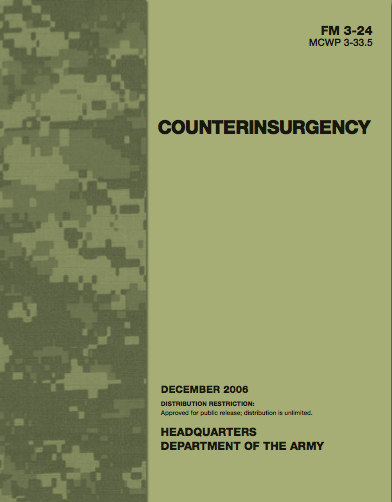Fracturing democracy?

The grassroots movement against the controversial technique of drilling for natural gas in shale formations -- known as hydraulic fracturing or "fracking" -- is gathering momentum, scoring recent political victories in several states with large gas reserves.
North Carolina, which is believed to be sitting on enough natural gas to power the state for 40 years, still prohibits fracking -- and environmental advocates are fighting to keep it that way. They mobilized in advance of this week's brief special legislative session to prevent the Republican-controlled General Assembly from overriding Democratic Gov. Beverly Perdue's veto of the Energy Jobs Act (SB 709), which would have required the state to take steps toward allowing fracking as well as offshore drilling, also banned by law.
The groups spent the days leading up to the session asking supporters to contact their representatives and speak out against overriding the drilling bill veto. And when lawmakers arrived at the legislature on Sunday evening, they were greeted by activists including members of Croatan Earth First! carrying anti-fracking signs and chanting, "What do we want? Clean water! When do we want it? Always!" Fracking involves the use of toxic chemicals and has been linked to hundreds of water contamination cases nationwide.
In the end, the legislative leadership decided not take up the pro-fracking bill. The Greensboro News & Record took a close look at the numbers and concluded that the leadership simply did not have the votes it needed for an override.
"It is interesting how strong the pushback has been on the fracking issue," N.C. Rep. Pricey Harrison, a Democrat who's one of the legislature's leading environmental advocates, tells Facing South. "The citizen involvement has been critical to stalling the override of Gov. Perdue's veto of SB 709."
Anti-fracking activists have also enjoyed political victories recently in states atop the Marcellus Shale, which stretches along the Appalachians Mountains from New York and northern New Jersey through Pennsylvania and much of Ohio, and south into Maryland, West Virginia and the western edge of Virginia:
* The New Jersey-based Delaware River Basin Commission postponed a vote on gas drilling regulations last month following an outpouring of concern from citizens. Activists went ahead with a planned rally anyway, celebrating with what one newspaper described as a "victory lap."
* Big crowds attended the first hearings on New York's draft regulations for shale gas development, with people speaking out about fracking's risks to public health, water and air.
* In Pennsylvania, an online petition protesting the legislature's attempt to restrict local communities from using zoning ordinances to regulate gas drilling collected over 11,000 signatures from the public in just a few days. Meanwhile, officials from 12 counties across the state submitted a letter to the state legislature urging lawmakers to protect local zoning rights.
* And in West Virginia, where legislators are reportedly close to passing a bill that would regulate fracking, citizens groups organized a call-in day to Gov. Earl Ray Tomblin (D) on Dec. 1 asking him to convene a special legislative session to take up the measure.
"Here's to more weeks like this one in many more places -- providing the 'strength in numbers' needed to keep pushing the movement against dirty drilling forward," Nadia Steinzor wrote last week on the blog of the environmental advocacy group Earthworks.
But just as opponents of fracking are making political gains, the gas industry is turning to harsh tactics for dealing with them -- including the admitted use of counterinsurgency strategies and psychological operations borrowed from the U.S. military.
'We're Dealing With an Insurgency Here'
 The disturbing revelations came during an oil industry conference held last month in Houston, in remarks recorded by attendee Sharon Wilson, director of the Oil and Gas Accountability Project at Earthworks. Wilson shared the recordings with CNBC, which posted sound clips with its report. The name of the conference? "Working Together as an Industry to Leverage Mass Media, Social Media & Community Support to Overcome Public Concern Over Hydraulic Fracturing."
The disturbing revelations came during an oil industry conference held last month in Houston, in remarks recorded by attendee Sharon Wilson, director of the Oil and Gas Accountability Project at Earthworks. Wilson shared the recordings with CNBC, which posted sound clips with its report. The name of the conference? "Working Together as an Industry to Leverage Mass Media, Social Media & Community Support to Overcome Public Concern Over Hydraulic Fracturing."
During a session titled "Understanding How Unconventional Oil and Gas Operators Are Developing a Comprehensive Media Relations Strategy to Engage Stakeholders and Educate the Public," Matt Carmichael, manager of external affairs for Texas-based Anadarko Petroleum, said:
If you're a P.R. representative in this industry in this room today, I recommend you do three things. … Download the U.S. Army/Marine Corps counterinsurgency manual. Because we are dealing with an insurgency. There's a lot of good lessons in there, and coming from a military background I've found the insight in that extremely remarkable.
Updated in 2006, the military's counterinsurgency field manual establishes U.S. doctrine in dealing with an insurgency, which it defines as "an organized, protracted, politico-military struggle designed to weaken the control and legitimacy of an established government, occupying power, or other political authority while increasing insurgent control." The manual uses recent examples of counterinsurgency campaigns from Iraq and Afghanistan, as well as historic examples from Vietnam, the Philippines and South America, and has chapters devoted to collecting intelligence and designing and executing counterinsurgency campaigns.
In another session at the same conference titled "Designing a Media Relations Strategy to Overcome Concerns Surrounding Hydraulic Fracturing," Matt Pitzarella (in photo above), communications director for Fort Worth, Texas-based fracking giant Range Resources (and former communications manager for Halliburton subsidiary Kellogg Brown and Root), said:
I think we have to get out ahead of all these issues. Everybody knows this. We've talked a lot about it. One thing that we've worked a lot on at Range is just getting more proactive in the community. It's not something that we've done before. In other parts of the nation it makes no sense for us to do that. In other parts, in Pennsylvania for instance, we have several -- I think Matt raised the issue of looking to other industries, in this case the Army and Marines. We have several former psy ops folks that work for us at Range because they're very comfortable in dealing with localized issues and local governments. Really all they do is spend most of their time helping folks develop local ordinances and things like that, but very much having that understanding of psy ops in the Army, and in the Middle East, does apply very helpfully here for us in Pennsylvania.
Short for "psychological operations," psy ops is a form of warfare that the U.S. Department of Defense describes as intended to "convey selected information and indicators to foreign audiences to influence their emotions, motives, objective reasoning, and ultimately the behavior of foreign governments, organizations, groups and individuals." In a publication issued last year updating the U.S. doctrine on such operations, the DoD stated that U.S. psy op forces "will not target US citizens at any time, in any location globally, or under any circumstances." However, it also stated that, when authorized, psy op forces "may be used domestically to assist lead federal agencies during disaster relief and crisis management by informing the domestic population."
Both Anadarko Petroleum and Range Resources are major players in the fracking industry. Range Resources was one of the first companies to successfully tap gas from Pennsylvania's Marcellus Shale, and it currently has an estimated $1 billion invested there as well as smaller holdings elsewhere across the Appalachian Basin and in Texas. The company is a major political donor, with most of its contributions going to Republicans. It is also a major lobbying force and has worked with the influential lobbying firm headed by former Homeland Security Secretary Tom Ridge.
Range Resources has paid hundreds of thousands of dollars in fines for numerous alleged health and safety violations, including working without permits, spilling fracking fluids into waterways, and contaminating residential drinking water wells. A recent New York Times investigation reported on numerous animal deaths and human illnesses that resulted after the company began drilling in one rural Pennsylvania community.
As DeSmogBlog reported, Range Resources' local government relations manager in Pennsylvania is James Cannon, a former Marine and Army reservist whose unit conducted psy ops during Operation Iraqi Freedom -- dropping some 36 million leaflets, distributing radios with instructions for tuning into broadcasts that urge cooperation with U.S. troops, and broadcasting messages by loudspeakers.
The radio show This American Life documented how Range sent threatening letters to residents of one Pennsylvania community where local officials sought to retain the power to regulate the company's operations through local ordinances. While one letter sent to all residents pointed positively to the company's local investments, a second letter sent at the same time to property owners with gas leases threatened to pull out of town unless local officials cooperated:
Throughout the state, Range is held up as the model for the natural gas drilling industry; everywhere, that is, except Mt. Pleasant. While we have made every effort to establish a positive and robust working relationship with your elected officials, our attempts continue to be rejected. As a result, we are sending this communication to inform you that we have revised our future long-term plans in the Township due to continuing difficulties with your Township supervisors and their unwillingness to work with us. As it stands, those revisions may provide detrimental to leaseholders.
Ultimately, we may be forced to shift to other, more cooperative townships. The shifting of operational activities will inevitably result in the shift of related activities, including the purchase of goods, services and food to other, more cooperative communities.
This American Life described what happened in Mt. Pleasant as a "full scale PR war -- a war in which the town was seriously outgunned."
It's a battle that could be coming soon to a fracking site near you.
Tags
Sue Sturgis
Sue is the former editorial director of Facing South and the Institute for Southern Studies.
